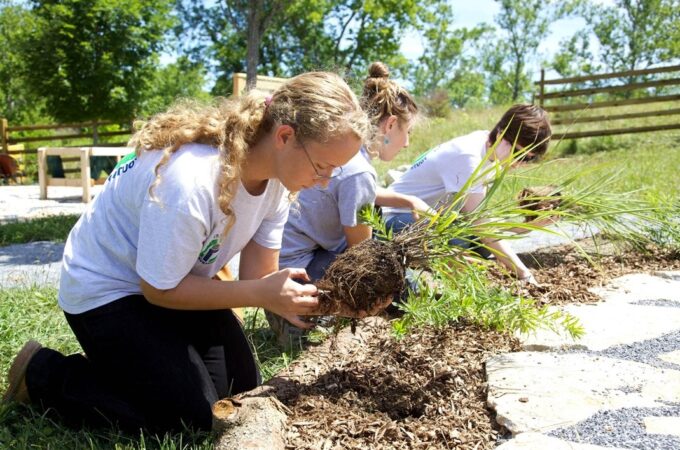Years ago, singing “Joy to the World,” I had a “revelation.” The third stanza startled me; it included an imperative: “No more let sins and sorrows grow!” And the imperative is elaborated as to scope. How far are we to “no more let sins and sorrows grow”? “As far as the curse is found.” Here in this hymn are marching orders for Christians.
No more let sins and sorrows grow
Nor thorns infest the ground
He comes to make His blessing flow
Far as the curse is found
Far as the curse is found
Far as, far as the curse is found
Sadly, many of the modern renditions of this carol omit this stanza. Maybe because it is a call for action in response to a message, not simply a happy proclamation. It asks for human responsibility and accountability for engaging in God’s big agenda. In the middle of the “feel good” season of the modern Christmas, perhaps we do not want to hear anything that requires actual effort.
As cultures move away from biblical revelation, the celebration of Christmas has deformed from being primarily a reverent celebration of Christ’s birth to include St. Nicholas, Santa Claus, snow, a red-nosed reindeer, Christmas trees, and, of course, massive consumer spending.
But this carol calls us back to reality.
Three kinds of evil
The setting for this stanza is the Garden of Eden after the fall. Childbirth brings pain, the garden grows weeds. Pain and sorrow appears in three major forms of evil. The first is personal evil. Human beings are sinners. We think evil thoughts, say evil words, and make evil decisions. The second is natural evil: weeds in the garden, floods, droughts, earthquakes, famine, pollution, sickness, and death. Third, is institutional evil: slavery, apartheid, the caste system, children and female sex trade, corruption in every level of society, the frank promotion of evil by the media and arts, and abortion.
Christ has come to make His blessings flow as far as the curse is found. But His people are to engage in this restoration and transformation process, to “no more let sins and sorrows grow.”
Here is a call that relates to the world of people and to the earth as a planet. In our world–privately and publicly, for cultures and nations–we are to stand against personal and institutional evil. With reference to the earth, we are to stand against the natural evil, the thorns that infest the ground. We are to be stewards of the earth and protect and nurture “the garden.”
There is a relationship between the growth of sins and the growth of sorrows. Sin always has its consequent sorrow. But we live in cultures that downplay human responsibility. Like addicts, we assign blame for our problems to others: “The devil made me do it!” “It was my brother’s fault!” “It was my wife/husband!” “It’s God’s fault!” “It’s the government’s responsibility to fix it!”
The sorrows of a financial crisis
This carol was written within the framework of the reality of our imago Dei (image of God) nature. We are moral creatures, we make decisions with real consequences. We are to function as responsible human beings. Where do sorrows come from? They come from sin!
As an example, let’s look at the “global economic crisis” that unfolded in 2008. Twelve years later the world is still feeling the pain and sorrow of this crisis.
 What set it off? Flouting biblical principles of personal integrity and sound economic stewardship, by multiple players. Congressmen forced institutions to offer unsecured loans. Financial institutions offered those unsecured loans to make a quick buck during a housing boom. Federal watchdog agencies turned a blind eye to the institutional evil. Loan officers sold loans they knew people could never repay. Consumers bought houses that they could not afford. They wanted something for which they did not have to work or save.
What set it off? Flouting biblical principles of personal integrity and sound economic stewardship, by multiple players. Congressmen forced institutions to offer unsecured loans. Financial institutions offered those unsecured loans to make a quick buck during a housing boom. Federal watchdog agencies turned a blind eye to the institutional evil. Loan officers sold loans they knew people could never repay. Consumers bought houses that they could not afford. They wanted something for which they did not have to work or save.
Sadly, Christians were involved in these practices at all levels of the process. But they were not functioning as Christians. Many experienced sorrows from this long tale of sinful decisions.
Christians are not to “go along to get along.” We are to stand against personal, natural, and institutional evil. “No more let sins and sorrows grow.”
Scientists led the way
Modern science was birthed out of this theological understanding. Francis Bacon, Johannes Kepler, and Isaac Newton were scientists who functioned consciously from a biblical worldview. For them there was no separation between faith and science. They understood the significance of the fall and the relationship between thorns and sins and their corresponding sorrows. Their lives were given to fight against the natural evil in the world. And from that fight was birthed what we know today as “modern science.”
Like these godly men, we are to work for restoration: a garden free from weeds, a city free from corruption and poverty, art and music that promote a culture of life and beauty. We are not to be spectators of evil unfolding in our communities and nations. We are to be the shapers of our cultures, the builders of our nations.
We are no longer to “let sins and sorrows grow or thorns infest the ground.” We are to be Christ’s instruments for the flow of his blessings as far as the curse is found.
The Lord is come! Let us celebrate, even in the age of Covid and a growing tyranny, by standing against sin and sorrow with righteousness and joy.
-Darrow L. Miller






